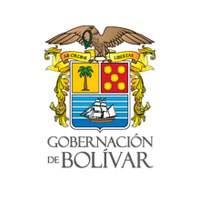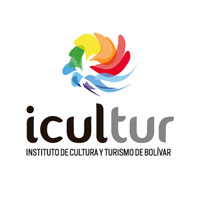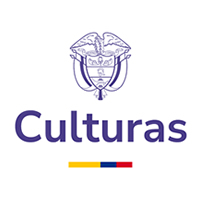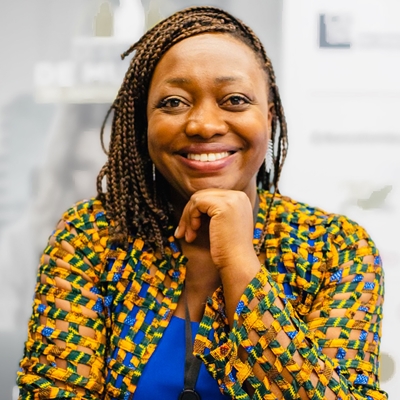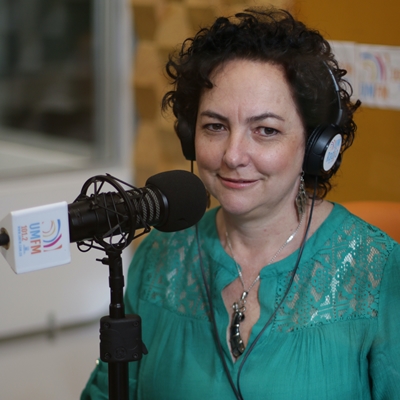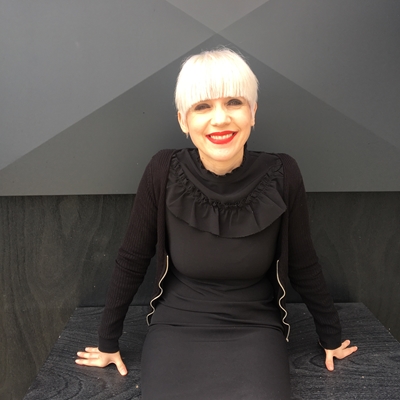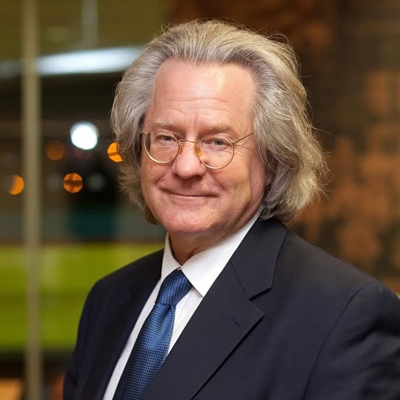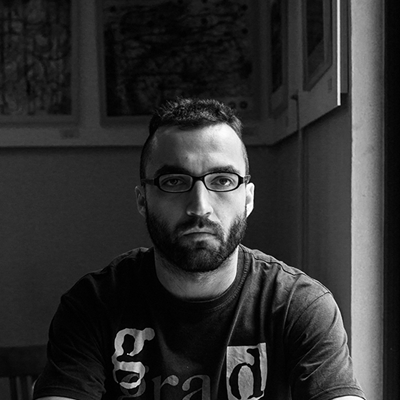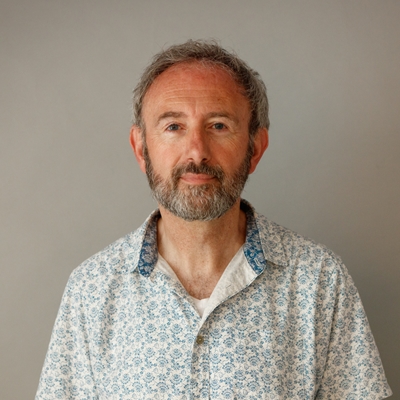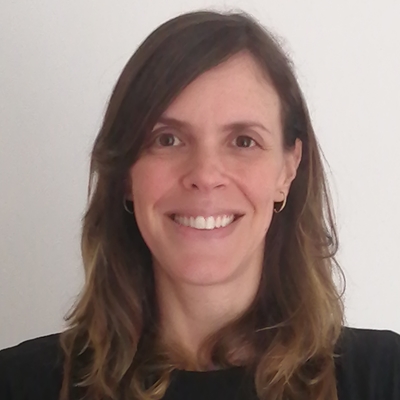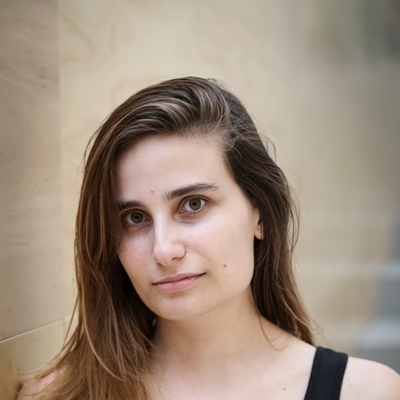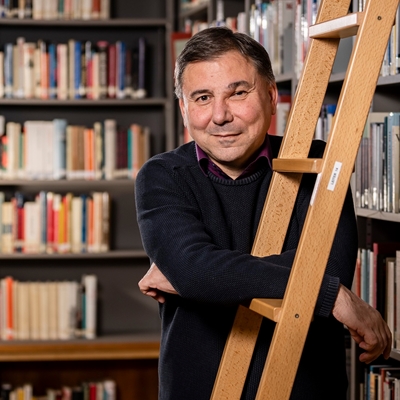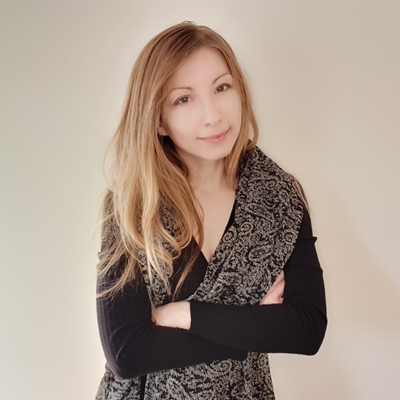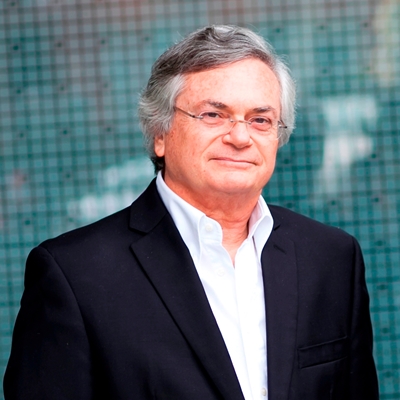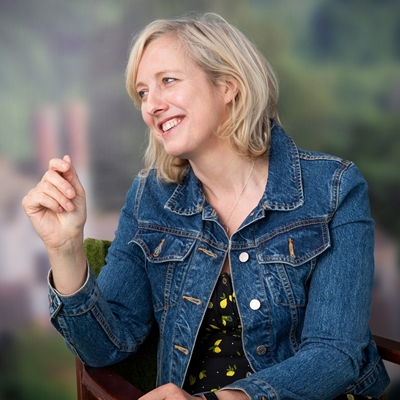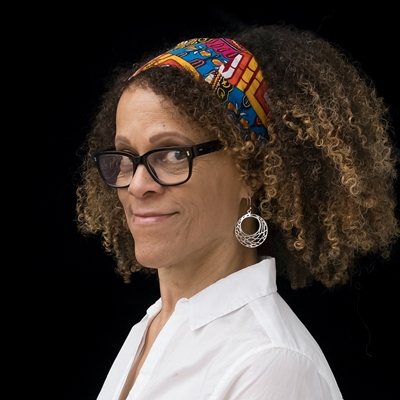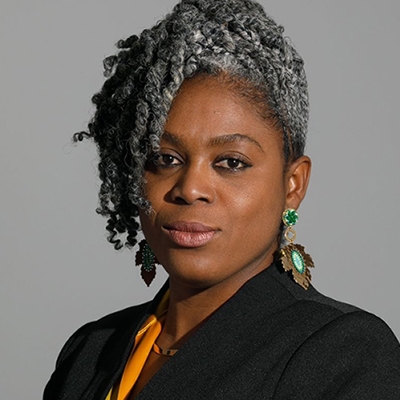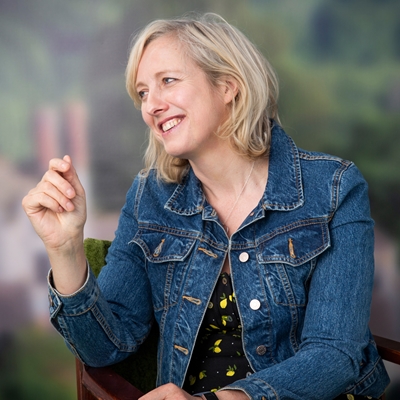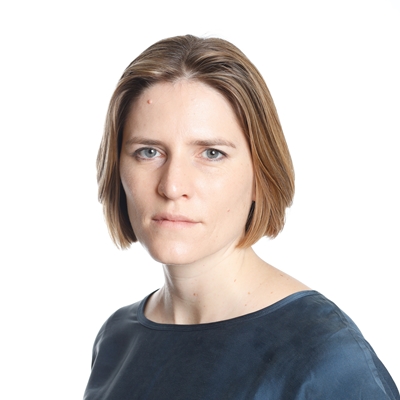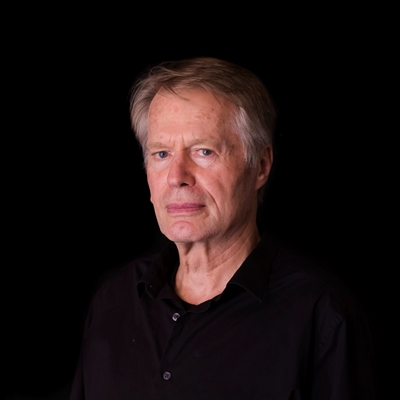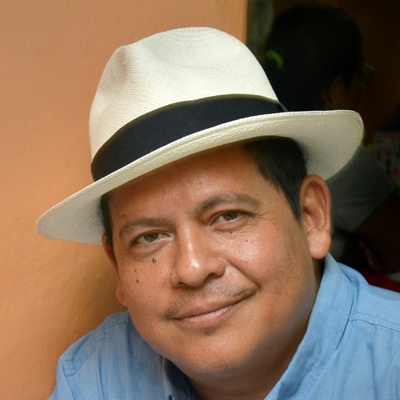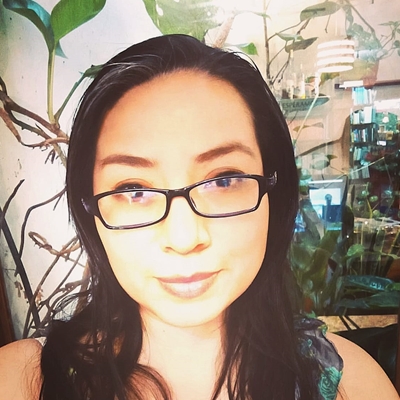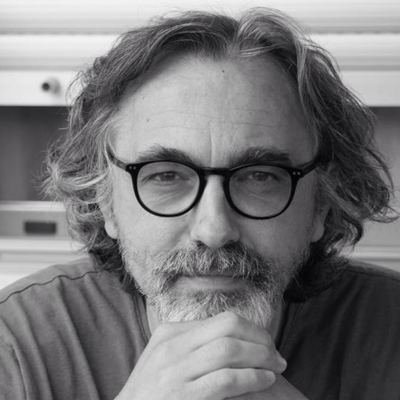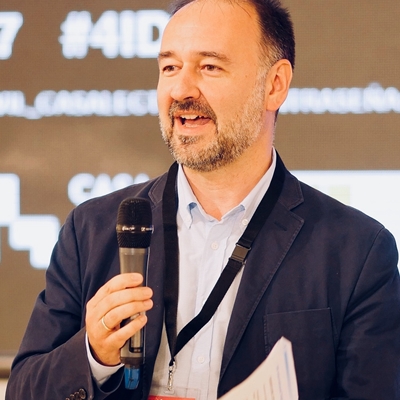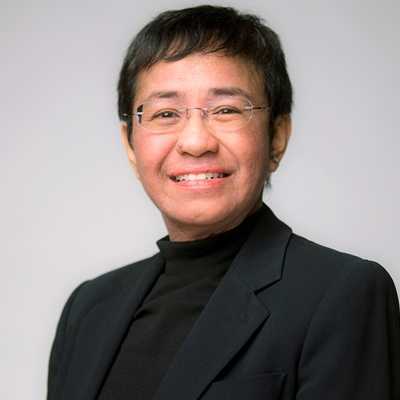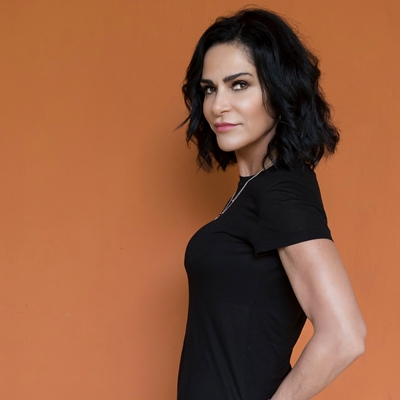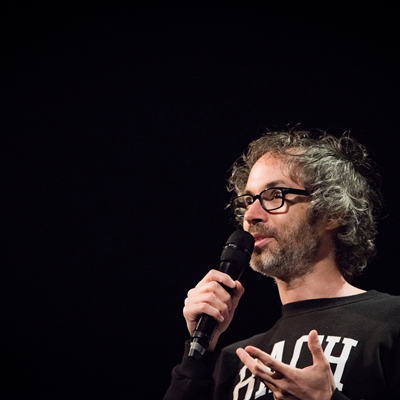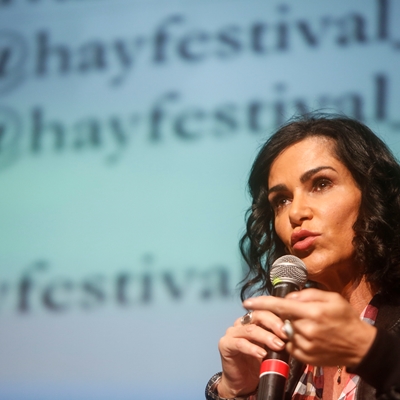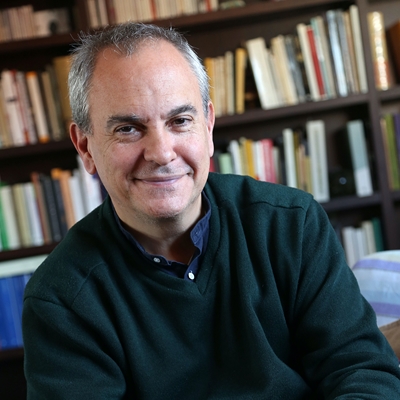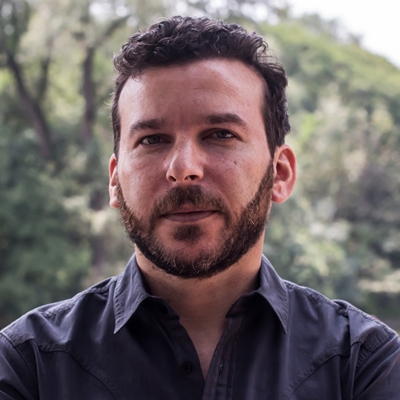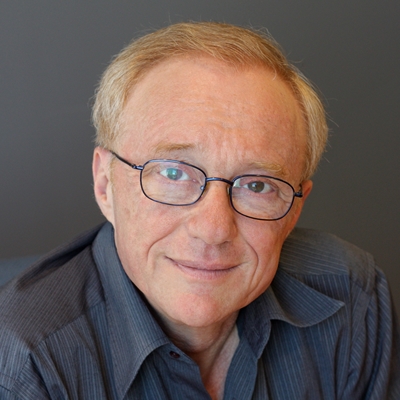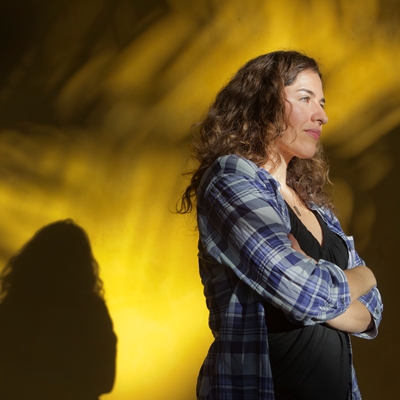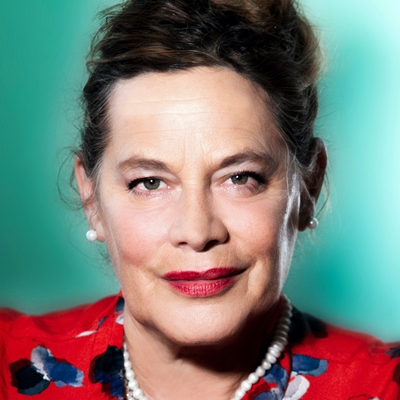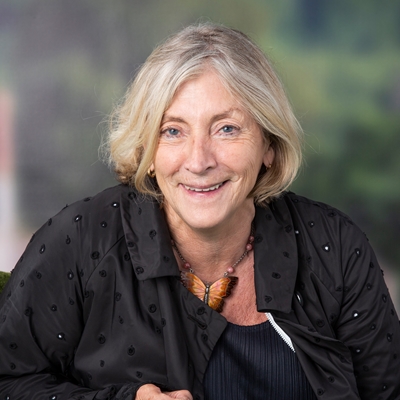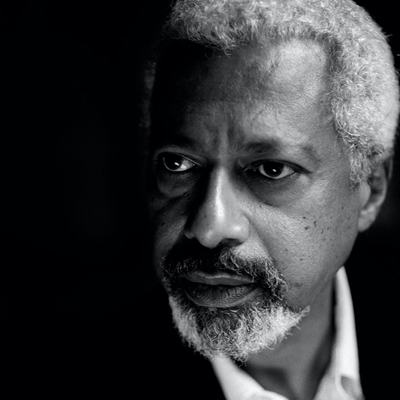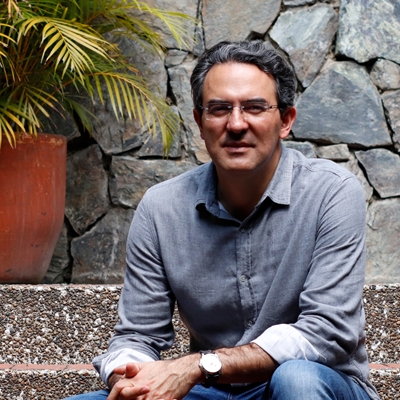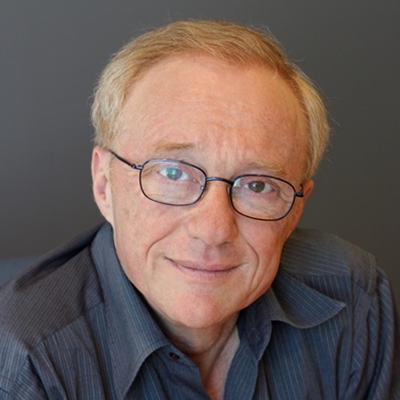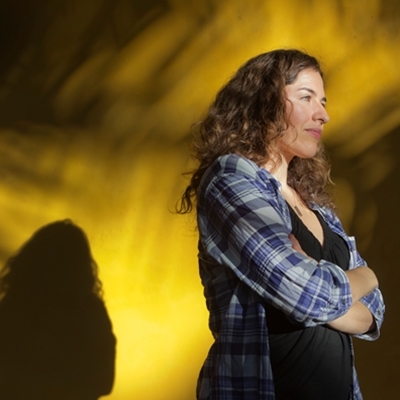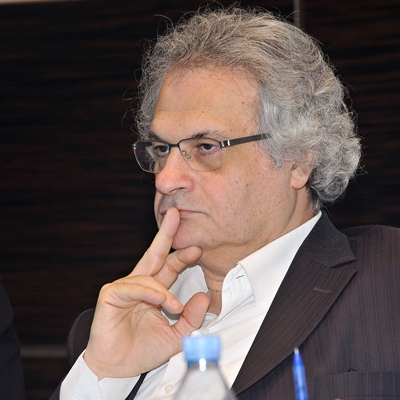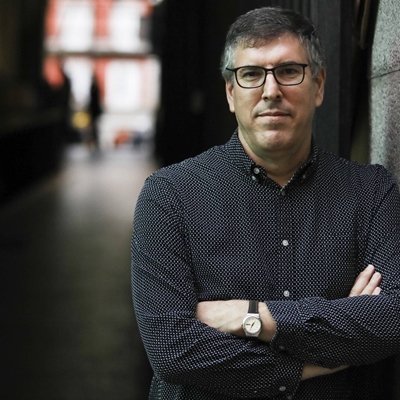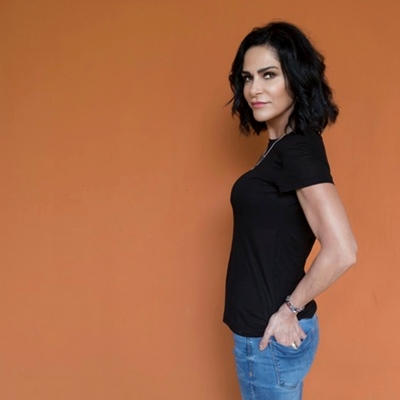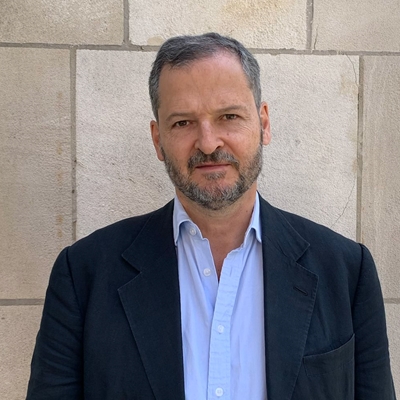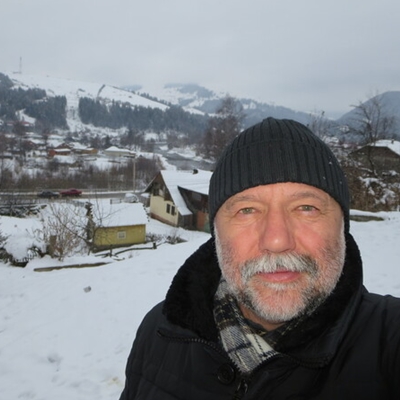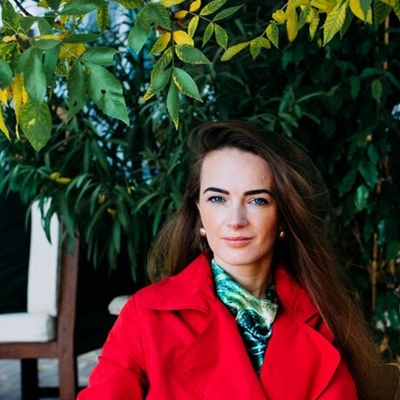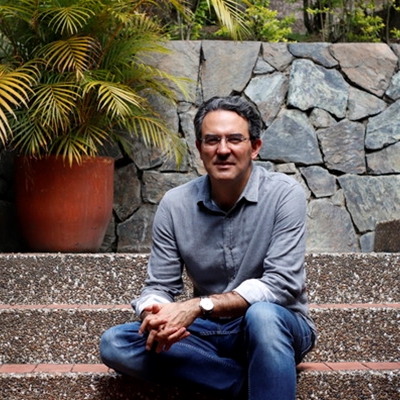Hay Festival Colombia Digital
Hay Festival Colombia took place from 21 to 30 of January 2022, with events in the cities of Cartagena de Indias, Medellín and Jericó. You are currently browsing the digital programme of the festival.
If you want to browse the in-person events of Hay Festival Cartagena de Indias, click here.
If you want to browse the in-person events of Hay Festival Medellín, click here.
If you want to browse the in-person events of Hay Festival Jericó, click here.
Event 13
Paula Marcela Moreno in conversation with Adriana Villegas Botero
Soñar lo imposible
Teatro Santamaría de Jericó
The influential social leader Paula Marcela Moreno (Colombia), former Minister of Culture and president of the corporation Manos Visibles, presents her book Soñar lo imposible (Dreaming the impossible), the story of social leaders who have built from within civil society and offered their talents to create a better country. A conversation with Adriana Villegas Botero in which she will also discuss racism, identity and feminism in the context of present-day Colombia.
Event 5
Remedios Zafra in conversation with Anel Pérez
Escenario Digital Hay Querétaro
The author and scientist Remedios Zafra (Spain), winner of the 2017 Anagrama Essay Prize for her book El entusiasmo. Precariedad y trabajo creativo en la era digital, presents her most recent publication, Frágiles. Cartas sobre la ansiedad y la esperanza en la nueva cultura (2021), which explores the complex dynamics behind immaterial and creative work, as well as the anguish and unease that can result from an, apparently privileged, life that is lived according to production and work.
Buy El entusiasmo by Remedios Zafra at Librerías Gandhi
Register to watch onlineSubscribe to Bookmate and read 'El entusiasmo' by Remedios Zafra
Register to watch onlineWith the support of AC/E and UNAM
Buy the books for this event
Event 6
A.C. Grayling in conversation with Eduardo Rabasa
Imagine the World Q & A
Escenario Digital Hay Querétaro
We at the Hay Festival, with the support of our regional ally SURA and working together with El País have worked with some of the world’s most brilliant minds in order to offer the Imagine the World series of digital events. This fourth event pays homage to the work of the philosopher Edgar Morin, crucial for an understanding of the contemporary world’s challenges and problems. The great British writer and philosopher, A.C. Grayling, will reflect on the human condition, particularly in the light of his magnum opus The Good Book. A Secular Bible, in conversation with Eduardo Rabasa.
Event in English with Spanish subtitles
Buy books by AC Grayling at Gandhi
Register to watch onlineBuy books by Eduardo Rabasa at Librerías Gandhi
Register to watch onlineSubscribe to Bookmate and read 'The Good Book' by A.C. Grayling
Register to watch onlineWith the support of SURA
Event 14
Santiago Beruete in conversation with Rosana Arizmendi
Gardernsophy, Greenery and A piece of land
Museo de Arte Religioso de Jericó
From the hanging gardens of Babylon to the organic gardens of the "urban guerrillas", the garden has been a reflection of society. The way we use the "tamed nature" of gardens evolves with the world and with each individual. Santiago Beruete (Spain), academic, philosopher and gardener, reflects in his latest book, Un trozo de tierra (A piece of land), on the urgency and necessity of preserving the environment, offering us a close and intimate look at nature, which is both our environment and our livelihood. This work continues the cycle of other texts by Beruete, such as Jardinosofía (Gardensophy), Verdolatría (Greenery) and Aprendívoros (Learnvorous). In conversation with Rosana Arizmendi.
With the support of Acción Cultural Española, AC/E and Fontur
Event 7
Tamara Tenenbaum in conversation with Gina Jaramillo
Escenario Digital UANL
In her life and work, Tamara Tenenbaum has explored very different points of view related to matters such as emotions and love, and she has done so based on feminist theory, a philosophical background, and her own experiences with people and with her own body. A Philosophy graduate from the University of Buenos Aires, she is a university lecturer, a writer and a journalist. She has contributed to publications such as La Nación, Infobae, Anfibai, Orsai and Vice. In her book El fin del amor. Amar y follar en el siglo XXIlooks in a challenging way at our views of romantic love, while considering things like the culture of consent, motherhood, being single, monogamy, polyamory, open relationships, and dating websites like Tinder. In conversation with Gina Jaramillo.
Buy books by Tamara Tenembaum at Librerías Gandhi
Register to watch onlineBuy books by Gina Jaramillo at Librerías Gandhi
Register to watch onlineWith the support of UANL
Buy the books for this event
Event 12
Victoria Amelina, Ivan Krastev and Carole Cadwalladr in conversation with Moisés Naím
Hay Festival and Lviv BookForum series. The future of democracy
Centro de Convenciones (Auditorio Getsemaní)
Democracy: the least imperfect system of government developed by societies. How can it be improved? Why is it so important to defend it? Three specialists will talk about one of the key matters for the future of humanity. With the political scientist Ivan Krastev (Bulgaria), Chairman of the Centre for Liberal Strategies in Sofia, Bulgaria, and a permanent boardmember of the Institute for Human Sciences in Vienna; the Ukrainian writer and activist Victoria Amelina; and Carole Cadwalladr (United Kingdom), British investigative journalist with The Guardian, famous for uncovering the Cambridge Analytica and Facebook scandal. In conversation with Moisés Naím.
Simultaneous interpreting from English to Spanish available
With the support of Open Society Foundations
Event 16
Bernardine Evaristo in conversation with Aurora Vergara
Centro de Convenciones (Auditorio Getsemaní)
In 2019, Bernardine Evaristo (United Kingdom) made history for being the first black woman to win the prestigious Booker Prize, with her novel Girl, Woman, Other. Her most recent work of fiction, Blonde Roots, a satirical novel that reimagines history as we know it: the great powers of Africa are in charge of the transatlantic slave trade, and those enslaved are white. With prowerful prose and a sharp sense of humour, Evaristo leads us to question the bases of society as we know it with this bold alternative tale of our past. At this event, she will talk to Aurora Vergara about her work and her life.
Simultaneous interpreting from English to Spanish available
With the support of the Ford Foundation and Fontur
Event 8
Solovino in concert
Teatro de la Ciudad
The first night of the festival comes to an end to the sound of Afro-funk and Latin music, with the Queretaro group Solovino, who will light up the stage with their sabrofunk and vibrant mixture of Latin rhythms. Let’s dance!
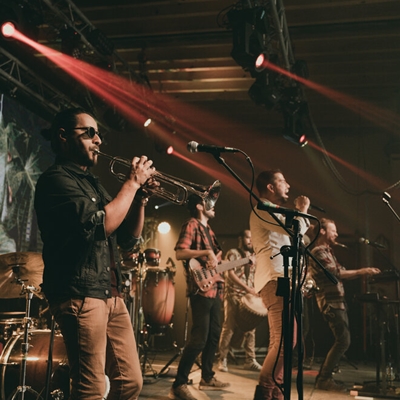
Event 21
Carole Cadwalladr in conversation with Emma Graham-Harrison
Cambridge Analytica
Centro de Convenciones (Auditorio Getsemaní)
In 2016, the data agency Cambridge Analytica manipulated, through Facebook, the information received by over 86 million users to influence the result of the US presidential elections and the Brexit referendum that same year. Carole Cadwalladr, a British investigative journalist who works for The Guardian, was the one who broke the scandal. Although Cambridge Analytica no longer exists, there are other companies that are still involved in similar practices. At this event, Cadwalladr will talk about the personal and professional consequences that she continues to face to this day for making her investigation public, and she will also discuss the importance of freedom of speech for democracy. In conversation with Emma Graham-Harrison.
Simultaneous interpreting from English to Spanish available
With the support of SURA and Bancolombia
Event 9
J.M.G. Le Clézio in conversation with Julián Herbert
Escenario Digital UANL
J.M.G. Le Clézio won the Nobel Prize for Literature in 2008 and is the author of over 40 books, translated into dozens of languages. He has often talked about the importance of his time in Mexico for his life and literature, particularly in terms of the possibilities it offered for seeing the world from a perspective other than that of western Europe. On this occasion, he will take part in the Hay Festival Queretaro to talk about his most recent book, Chanson Bretonne (2021), which talks about a childhood in Brittany during the war, and is a reflection on nationalisms, identities and social transitions not unlike those he experienced in his early life. In conversation with Julián Herbert.
Buy books by J.M.G. Le Clézio at Librerías Gandhi
Register to watch onlineBuy books by Julian Herbert at Librerías Gandhi
Register to watch onlineBuy the books for this event
Event TE5
Claudia Bautista and Jesús Trueba in conversation with José Manuel Anta
Collaborative efforts. Lessons for survival in changing times
Sede Talento Editorial
Despite the great difficulties they have experienced, independent bookshops and publishing houses have managed to create spaces for cooperation in order to get through the pandemic, facing up, at the same time, to the major and expanding role of the big e-commerce platforms. We will look at two experiences: RELI Red de Librerías Independientes (Mexico) and Todostuslibros.com (Spain). Claudia Bautista, from RELI and Jesús Trueba, from Todostuslibros.com talk to José Manuel Anta.
With the support of AECID
Event 26
Maria Ressa in conversation with Lydia Cacho
Centro de Convenciones (Auditorio Getsemaní)
Maria Ressa (Philippines), is the journalist that won the Peace Nobel Prize in 2021 for work denouncing Duterte's regimen, corruption and and brutality; she will be presenting her latest book, How to Stand Up to a Dictator: The Fight for Our Future, a call to the world to raise awareness about social media misinformation and a passionate manifesto about the importance of the freedom of press to ensure democracy's health versus abuse of power by those who control media, said Rodrigo Duterte o Mark Zuckeberg. In conversation with Lydia Cacho.
Simultaneous interpreting from English to Spanish available
Sponsored by SURA, Bancolombia and Fontur
Event 10
James Rhodes in conversation with Lydia Cacho
Sede Digital Hay Querétaro
James Rhodes (United Kingdom) is neither a pianist or a writer. Besides being one of the most eminent renovators of classical music on an international level, he is the author of one of the most impactful memoirs of recent years: Instrumental, where he exposes the child abuse he suffered and praises the healing power of music. A Save the Children ambassador and tireless campaigner for the improvement of laws that protect childhood all around the world, Rhodes will talk to Lydia Cacho, another great example of international activism, in a conversation that promises to be both revealing and significant.
Buy books by James Rhodes at Librerías Gandhi
Register to watch onlineWith the support of the British Council
Buy the book for this event
Event 31
Pablo d'Ors in conversation with Eliezer Budasoff
The spiritual life
Centro de Convenciones (Auditorio Getsemaní)
With the support of SURA and Bancolombia
Event 11
David Grossman in conversation with Guadalupe Nettel (Spanish version)
Llwyfan Digidol Cymru – Wales Digital Stage
David Grossman is one of the most outstanding figures in contemporary Israeli letters. Apart from his impressive output of literary and non-fiction work, has also become involved in activism, seeking peace in a convulsive part of the world. He has written around 15 novels and five works of non-fiction, including A Horse Walks into a Bar (Man Booker International Prize), translated into many different languages. His most recent book is the novel Life Plays with Me (2021), a masterly family saga that recounts the experiences of three generations of women in the Balkans and the oppression they undergo during the Soviet period. He will talk to Guadalupe Nettel.
Check out our BONUS TRACK on David Grossman
Buy books by Guadalupe Nettel at Librerías Gandhi
Register to watch onlineBuy books by David Grossman at Librerías Gandhi
Register to watch onlineBuy the books for this event
Event 36
Deborah Levy in conversation with Rosie Boycott
Centro de Convenciones (Auditorio Getsemaní)
The British novelist, dramatist and poet, Deborah Levy, author of autobiographical books such as Real Estate ―where literary experience and a feminist point of view are intertwined with her experiences― presents this book and also the novel The Man Who Saw Everything, nominated for the Booker Prize in 2019, a story that mixes temporalities (East Germany before the fall of the Berlin Wall, London in the 1980s and today) to talk about love, our relationship with history and the tendency of human beings to repeat themselves. In conversation with Rosie Boycott.
Simultaneous interpreting from English to Spanish available
With the support of the British Council and Fontur
Event 41
Abdulrazak Gurnah en conversación con Juan Gabriel Vásquez
Centro de Convenciones (Auditorio Getsemaní)
Unknown to many until he won the Nobel Literature Prize in 2021, Abdulrazak Gurnah (Tanzania/United Kingdom) uses fiction as a way of denouncing the effects of colonialism, telling the story of those who seek refuge between cultures and continents. This is the case of Paradise, his most acclaimed novel so far, which portrays the harshness and beauty of pre-colonial Africa through the eyes of a boy who is sold by his father to pay off a debt with a trader, which leads to a journey throughout Tanzania. His most recent book, Afterlife, tells the story of Ilyas, kidnapped by colonial German troops during his childhood, on his return to his hometown. Set during the beginning of the 20th century, when the African continent has been distributed among the colonial powers of Germany, the United Kingdom and France, these are getting involved in another great conflict that will devastate everything. A powerful novel that reflects on the deprivation and destruction that result from colonialism and war. Abdulrazak will talk about these books and much more in conversation with Juan Gabriel Vásquez.
Simultaneous interpreting from English to Spanish available
With the support of Promigas, Surtigas, Spec LNG and Fontur
Event 11-En
David Grossman in conversation with Guadalupe Nettel (English version)
Llwyfan Digidol Cymru – Wales Digital Stage
David Grossman is one of the most outstanding figures in contemporary Israeli letters. Apart from his impressive output of literary and non-fiction work, has also become involved in activism, seeking peace in a convulsive part of the world. He has written around 15 novels and five works of non-fiction, including A Horse Walks into a Bar (Man Booker International Prize), translated into many different languages. His most recent book is the novel Life Plays with Me (2021), a masterly family saga that recounts the experiences of three generations of women in the Balkans and the oppression they undergo during the Soviet period. He will talk to Guadalupe Nettel.
Check out our BONUS TRACK on David Grossman
Buy books by Guadalupe Nettel at Librerías Gandhi
Register to watch onlineBuy books by David Grossman at Librerías Gandhi
Register to watch onlineBuy the books for this event
Event 12
Amin Maalouf in conversation with Guillermo Altares (Spanish version)
Llwyfan Digidol Cymru – Wales Digital Stage
Amin Maalouf (Lebanon/France) is considered to be one of the most outstanding writers of French letters, and has won awards such as the Goncourt Novel Prize (1993) and the Prince of Asturias Literature Award (2010). His works include Le naufrage des civilisations, Leo Africanus and In the Name of Identity. At this event he will talk about Nos frères inattendus (2020), a novel about the experiences of Alec, an artist, and Eve, a successful writer, who live on a tiny island in the Atlantic Ocean. One day, the total failure of all means of communication indicates that the outside world has experienced an extraordinary and inexplicable transformation. This is a powerful parable for understanding the dilemma of our civilization and its uncertainty about the future. In conversation with the El País journalist, Guillermo Altares.
Buy books by Amin Maalouf at Librerías Gandhi
Register to watch onlineBuy Una lección olvidada by Guillermo Altares at Librerías Gandhi
Register to watch onlineWith the support of the French Embassy in Mexico and the French Alliance
Buy the books for this event
Event 45B
Lydia Cacho, Sergio Jaramillo, Andrey Kurkov, Oleksandra Matviichuk and Juan Gabriel Vásquez in conversation with Catalina Gómez Ángel
Why is Ukraine important for Latin America?
Centro de Convenciones (Auditorio Getsemaní)
In this talk, we will discuss about the repercussions of the war in Ukraine in the world and, in particular, in Latin America; and about the possible bridges that could be built, both as the support that Latinamerican countries could give to a besieged country and as the lessons learned from this war. With the journalist and activist Lydia Cacho (Mexico), Sergio Jaramillo (Colombia) former Peace Comissioner in Colombia, Oleksandra Matviichuck (Ukraine) Director of the Human Rights Organization for Civil Liberties in Ukraine and winner of the Nobel Peace Prize 2022, and authors Andrey Kurkov (Ukraine) and Juan Gabriel Vásquez (Colombia). They will talk to the Colombian journalist Catalina Gómez Ángel, war correspondent in Ukraine.
With the support of Open Society Foundations and Fontur
Explore All Genres
- 20 Questions
- Afrodescendencias
- South to South
- Architecture
- Art
- Arts & Culture
- Biography
- Children
- Culture
- Economics
- Education
- Equality
- Fiction
- Film
- Gender
- Globalisation
- History
- Human Rights
- Indigenous Cultures
- Journalism
- Literature
- Maths
- Memoir
- Music
- Nature & Environment
- Philosophy
- Photography
- Podcast
- Poetry
- Politics
- Science
- Technology
- Thinking
Partner for Latin America

Principal Sponsors



Government Partner

